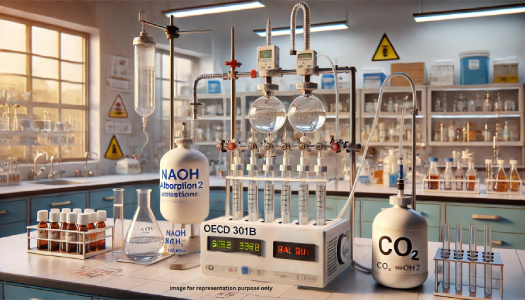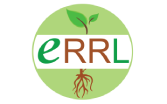Biodegradation Testing
- OECD 301B
- ASTM D5864
- ISO 17088
- ASTM D6400
- ASTM D5511
- ASTM D5526
- BS EN ISO 15985
- ISO 17556
- ASTM D 5988
- ISO 14855-1
- ISO 14855-2
- ASTM D5338
- ASTM D6691
- ISO 14851
- ISO 14852
- ISO 14853
- OECD 208
- ISO 11268-1
- ISO 11268-2
- ASTM D 6954
- ASTM D5291
- ISO 13641-1
OECD 301B Biodegradability Test :
The 301 B – CO2 Evolution Test is a reliable method to evaluate the biodegradability of substances. This test determines whether a material can naturally decompose and release carbon dioxide (CO2) when exposed to microorganisms in controlled conditions. It is an essential tool for assessing the environmental impact of various products.

Key Highlights of the Test :
- Principle : Microorganisms break down the test substance in a mineral medium, producing CO2 as a byproduct. The CO2 is trapped and measured over 28 days to determine the biodegradability percentage.
- Test Substance : Materials tested are typically non-volatile with known carbon content, including products like liquids, oils, chemicals, greases, lubricants, and colorants. These are often tested to ensure they meet biodegradability standards.
- Inoculum : Microbes used in the test are sourced from activated sludge, sewage effluents, surface water, or soil, simulating real-world conditions.
- Process :
- CO2 is measured through trapping solutions analyzed and percentage of biodegradation is derived.
Importance of the Test :
- Environmental Compliance : Ensures materials meet biodegradability standards and global regulations, reducing harm to ecosystems.
- Product Certification : Helps manufacturers certify products as environmentally friendly, which is essential for eco-labeling.
- Sustainability Assessment : Evaluates the long-term environmental impact of products like lubricants, greases, and colorants.
- Supports Innovation : Encourages the development of biodegradable alternatives for non-degradable materials, promoting sustainability.
